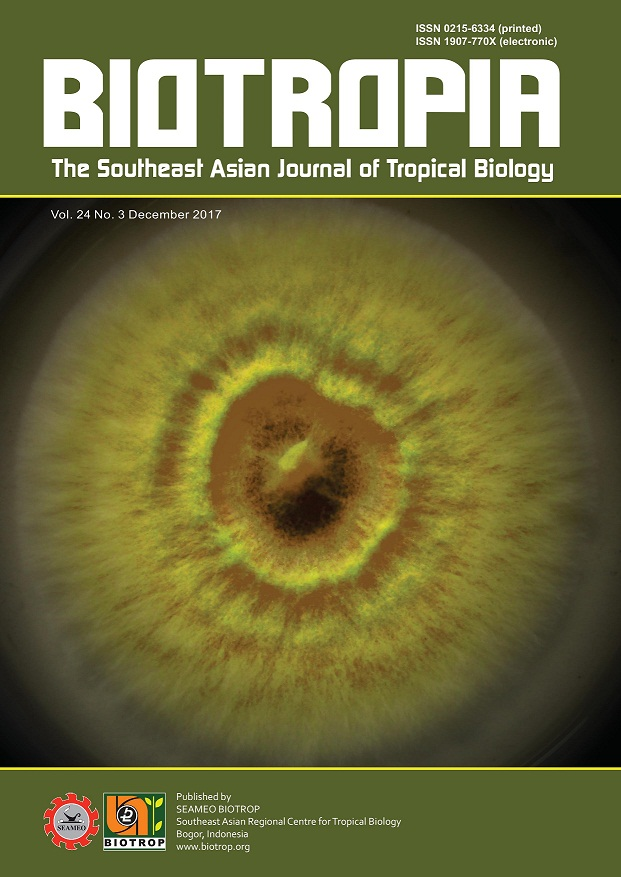
Tags
RECOVERY OF RESIDUAL FOREST ECOSYSTEM AS AN IMPACT OF SELECTIVE LOGGING IN SOUTH PAPUA: AN ECOLOGICAL APPROACH
Content Language : English

Papua has been experiencing heavy logging activity in its forests for decades . However, only several studies focused on the effect of logging in the forest ecosystem. This research was aimed to analyze recovery processes of the forest ecosystem. The research was conducted in the logged tropical rainforest in South Papua using ecological approach which used tree communities as biotic and soil condition as abiotic indicators. Data were collected in the logging area of PT Tunas Timber Lestari located in the tropical rainforest of South Papua. There were five groups of forests used in this research i.e. unlogged, one year post selectively-logged, five years post selectively-logged, ten years post selectively-logged and fifteen years post selectively-logged forests. Thirty nested plots were laid on each forest group. Canonical Correspondence Analysis (CCA) was applied to analyze the understory and upperstory plant communities. Understory and upperstory plant communities formed different patterns due to logging. Plant communities in the ten and fifteen years post-selectively logged forests were not similar to those in the unlogged forest. Soil organic matter (SOM) content in the selectively logged forests was lower than that in the unlogged forest. These occurrences indicated that the selectively logged forests were still recovering and required more than fifteen years to be fully recovered.
Link

This work is licensed under a Creative Commons Attribution-NonCommercial-NoDerivatives 4.0 International License.
